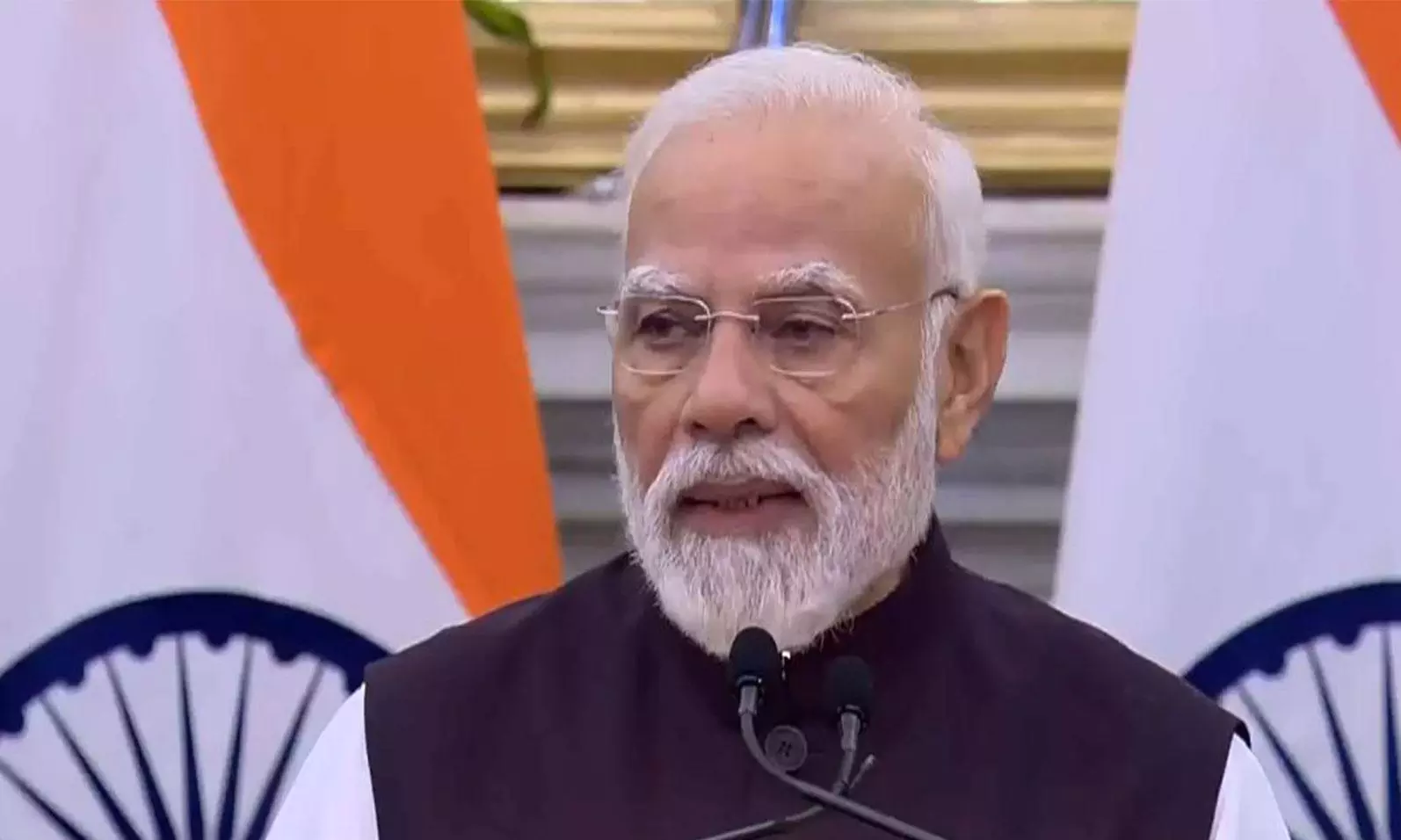Hyderabad: Dr Ramesh Kanneganti, a defence expert and scholar of International Relations, has been recently appointed as Chairman of the UGC Subjects Experts Committee on National Security Studies, an initiative by National Security Adviser Ajit Doval. A.B. Mathur, who is former IB and RAW chief is also a special invitee of this new UGC committee.
Ramesh is the founder and executive director of the Hyderabad-based think tank – Centre for Human Security Studies (CHSS). He is an International Visitor Leadership Programme (IVLP) Fellow of the US state department and did PhD in American Studies.
He spoke on a wide range of issues in an exclusive interview with Deccan Chronicle on India playing a key role in defusing the Iran-Israel war, possible nuke threat, lessons learnt from Operation Sindoor, the impact of Operation Sindoor on Pakistan and Hyderabad’s chances to emerge as a key centre for defence studies.
Ramesh predicted the creation of a new sovereign Baloch state in a short span of six months. Excerpts from the interview.
Q. What are the current geopolitical challenges for India?
China’s Belt and Road Initiative is penetrating India’s political, economic, maritime, cyber-security and services sectors. While not a traditional invasion, it’s a smart neo-colonial approach to assert dominance through trade and technology.
Q. How serious is the Chinese threat?
China’s goal is global hegemony, particularly in Africa and Asia, through debt-trap diplomacy and political infiltration. Our think tank is working to secure Indian seaports using IoT and maritime technology in collaboration with Indian Maritime University.
Q. Can India reclaim Pakistan-occupied Kashmir (PoK)despite China’s CPEC investments?
It is a major challenge. India must engage in diplomatic negotiations with China while pursuing strategic goals. The corridor connects China to Pakistani ports for easier access to Central Asia and Europe.
Q. What’s the impact of the Iran-Israel conflict on India’s oil security?
The Strait of Hormuz handles 20 per cent of global oil. If Iran blocks it, it will severely affect global prices. India, heavily dependent on Middle Eastern oil, must diversify sources as it did during the Russia-Ukraine crisis and the US imposition of restrictions on Iran.
Q. How should India address energy challenges from Middle East instability?
India should secure oil from Russia, Qatar, Saudi Arabia and even explore domestic reserves like in the Andaman. The key is to not be bound by US sanctions and continue sourcing cheap oil.
Q. What role is the US playing in the Iran-Israel crisis?
The US-Israel alliance is deep-rooted and driven by strategic, military and cultural ties. Israel provides actionable intelligence and receives $3 billion in aid annually. The Jewish lobby significantly influences US foreign policy.
Q. How real is the nuclear threat between Israel and Iran?
While both are nuclear-capable, a nuclear conflict is unlikely. India, with its diplomatic relations with both nations, can mediate. Strong leadership and international moral pressure are crucial now.
Q. Can Israel listen to India amid the conflict?
Israel has already inflicted significant damage on Iran. However, with pressure from the US, Europe, Russia and China, India can help de-escalate tensions and influence outcomes via diplomacy and strategic alignment.
Q. What has changed in Indian warfare post Operation Sindoor?
India has evolved from a reactive to a proactive and now predatory posture under Modi and Doval. Operation Sindoor is proof—we neutralise enemies even in safe havens. This reflects a shift toward an assertive national security strategy.
Q. What are the key lessons from Operation Sindoor and Pahalgam attack?
India must boost tourism policing in Kashmir. Intelligence—strategic, human and visual—must be upgraded. We need a bottom-up approach, engaging fishing communities and youth through awareness and education. CHSS is actively working with students and marginalised communities under Mission E3: Educate, Expand, Empower.
Q. What loss did Pakistan suffer due to Operation Sindoor?
The operation exposed Pakistan’s terror links to the world. Their airspace was compromised and trust in their military eroded. Interestingly, some Pakistani civilians are praising Indian actions and there’s a growing disconnect between their people and the regime.
Q. What’s the status of the Balochistan movement?
Baloch groups are now unified, collecting taxes and running local administrations. Our intelligence suggests that Baluchistan may become a sovereign nation within six months. Their resource-rich land and growing international outreach strengthen their position.
Q. How is Hyderabad shaping up in modern warfare technology?
Hyderabad has top defence establishments and tech infrastructure. Warfare today is digital, cyber-driven and powered by AI and brain-machine interfaces. India has made rapid progress and Hyderabad is at the forefront of this evolution.
Q. Will Hyderabad emerge as a hub for Defence Studies?
Yes. The TG Council of Higher Education has tasked CHSS with designing a new BA programme in Defence and Security Studies. Hyderabad has the institutions, infrastructure, culture and political stability to lead in defence education. CHSS has already empowered 15,000 students in Telangana and is expanding its footprint.
Q. What is your role as chairman of the UGC subject experts committee on national security studies?
This is a first-of-its-kind initiative by UGC, guided by the National Security Advisory Board. Our goal is to sensitise youths and faculty on national security challenges. The syllabus will cover traditional and non-traditional aspects—maritime, food, coastal and cyber security—via UGC’s SWAYAM platform. It will be mandatory for all streams and offered as a credit-based for UG and PG students of all streams under the Massive Open Online Course (MOOC).






